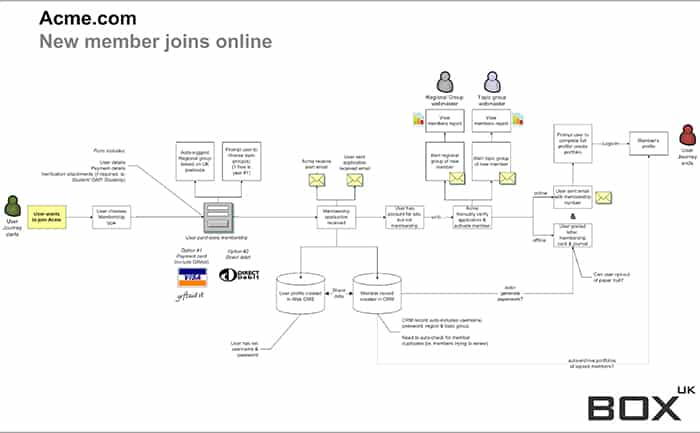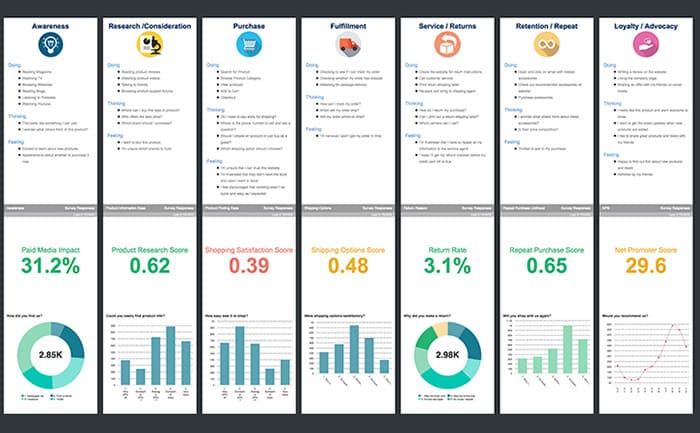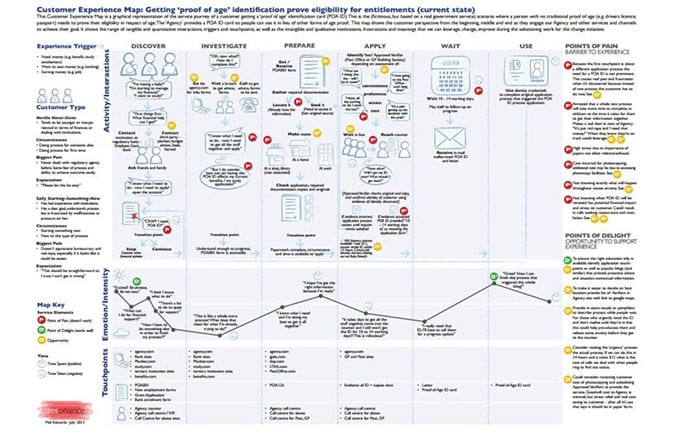
Importance of Customer Journeys
With the ever-changing experiential marketing industry, a customer journey is important as it allows a business or brand to gain insight into how they can improve the customer experience, where the problem/pain points are (and most importantly) define what customers and prospective customers need in order to make a purchase. The beauty of doing an Experiential Marketing Journeys map is that it enables the brand to visualise with their customers on the different touchpoints they encounter in order to complete the task at hand. It enables the brand to see the journey from the perspective of the customer.
A customer journey can also be used to illustrate key touchpoints from an experiential activation to a brand activation to a pop up activation – there is no limit for what a customer journey can be created for.
Below are a few key steps for a brand to implement a successful experiential marketing customer journey plan;
Understanding each Interaction
Track and understand all customer experiences at each interaction. With channels such as social media playing an increasingly important part of the customer journey, it is becoming vital that brands understand the wider pathway to purchase outside of just the consumer’s touchpoints with the company.
Connect the multi-journey process
When data is collected at each touch point, this will give the brand a complete view of customer identities and behaviours across the board. This will give the brand an opportunity to identify gaps with the current offering also which is necessary during this process.
Determine insights and lessons
Real insights can be deemed from the details and emotions behind the journey. If possible, organizations should employ more sophisticated analytics that can unlock structured and unstructured data.
Action insights and lessons
Taking the insights and lessons learnt and actioning them! Further insights can be gathered from patterns or changing trends.
Continuously learn and improve
Brands should not sit still and instead should continuously learn and improve their customer journey. Making customers feel understood, appreciated and heard by optimizing their journey and experience is imperative to a long lasting relationship.
As mentioned above, there are lots of customer journey maps to consider that best suit the brands’ objectives. All is dependent if the marketing plan is linked to experiential marketing, brand activations or say a pop-up activation to the scale of what they want to portray.
Here are three types to consider;
User Experience Focused Maps (UX Journey Maps)
Typically, the user experience focused maps are utilised to showcase how users interact with software. With this information, companies can design ways to make their software more simple and easier to use. Normally the journey is very detailed as illustrated below from Acme.com.
Marketing Automation / Sales Journeys (Sales Automation Journey Maps)
Sales Automation Journey Maps help the sales and marketing team map the customer’s path from awareness to prospect to customer. The focus is primarily to showcase the touchpoints the consumer is experiencing along the way.
Below is an example of a high-level journey from Pontilist.
Customer Experience Journey Maps (CX Journey Maps)
Customer experience maps typically seek to document the entire journey: from awareness to sales, delivery and service of the journey. Below is again another detailed experiential marketing journeys from Wootric.
Examples of simple and illustrative customer journey maps;
So to sum it up – everything a brand does in terms of marketing, research, advertising and more all play a role in shaping the customers’ experience. Focusing on the customer journey and fully understanding all the processes is important for a brand to sustain in this competitive market.










